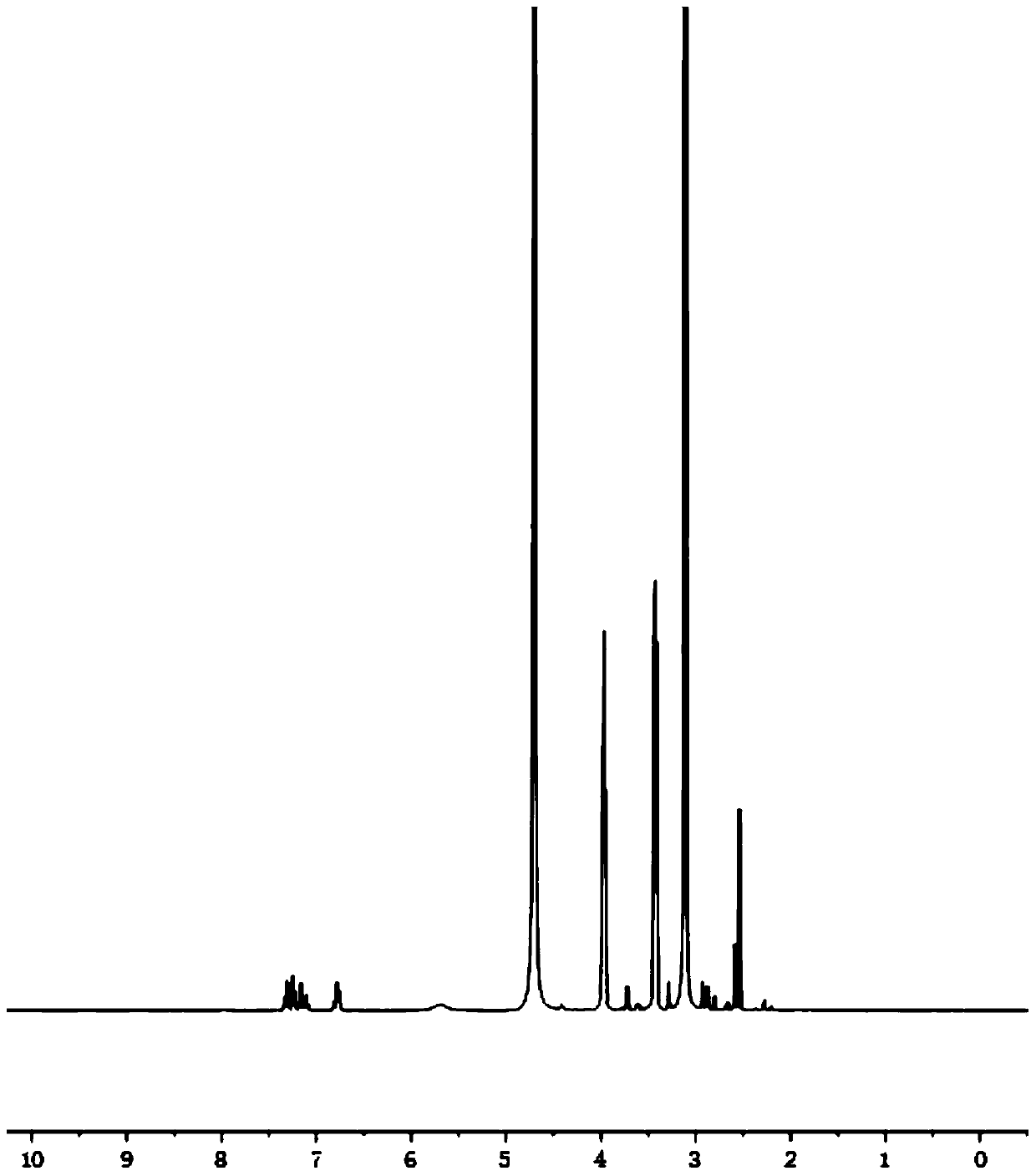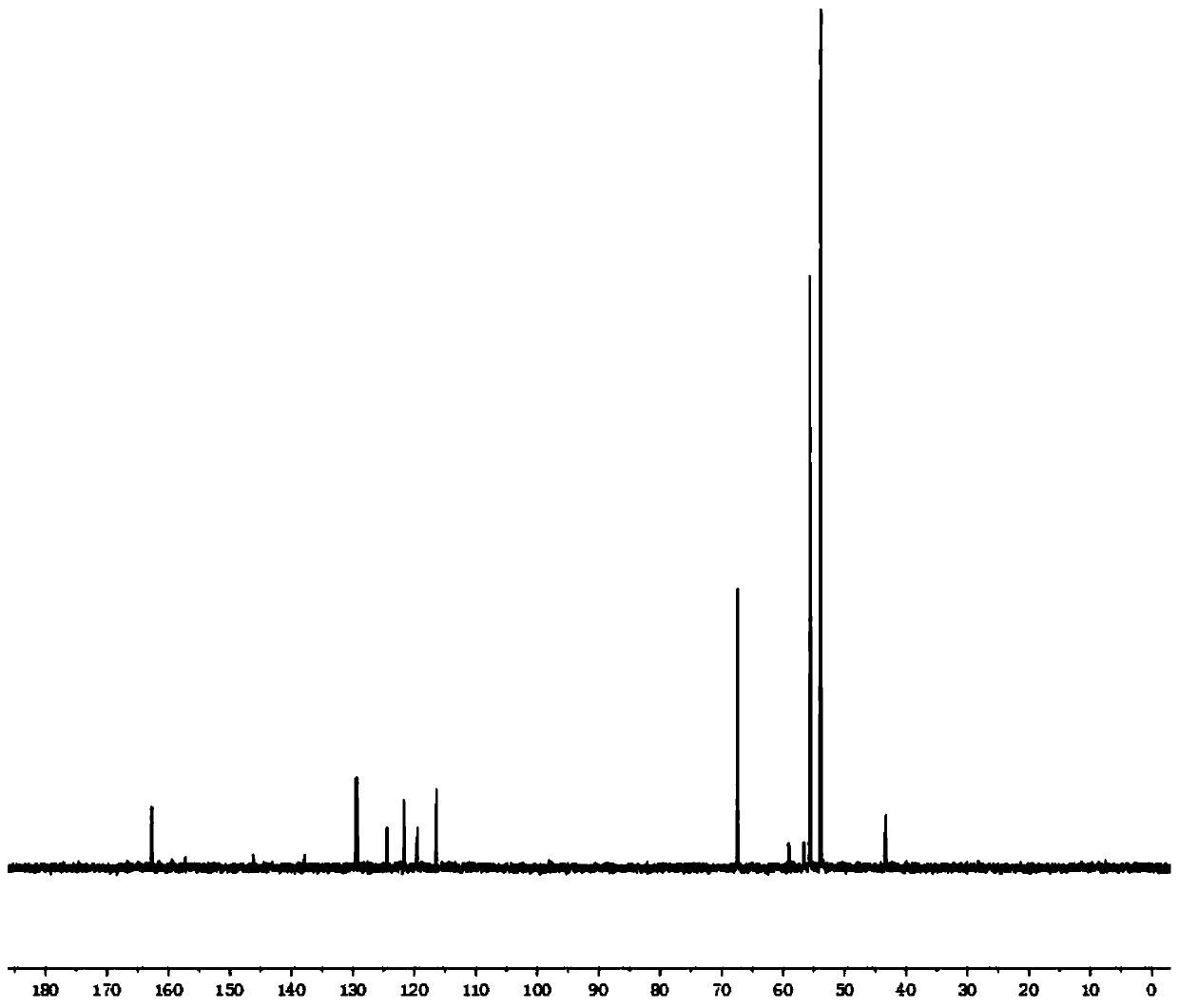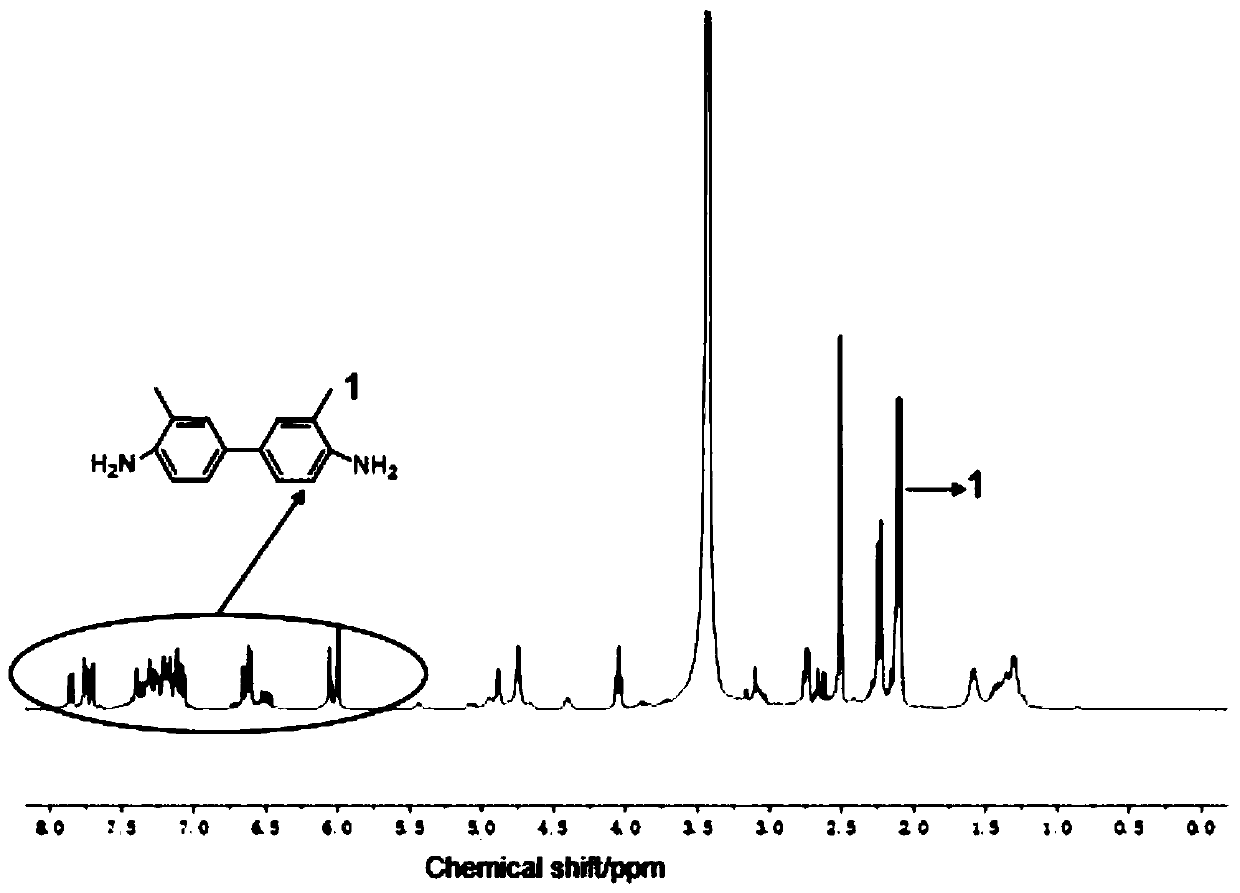Method for degrading and recovering polyester polyurethane
A technology of polyester polyurethane and recycling methods, applied in plastic recycling, recycling technology, chemical instruments and methods, etc., can solve the problems of harsh reaction conditions, large environmental pollution, high degradation cost, etc., and achieve moderate reaction temperature and simple solvent Easy to obtain, short reaction time effect
- Summary
- Abstract
- Description
- Claims
- Application Information
AI Technical Summary
Problems solved by technology
Method used
Image
Examples
Embodiment 1
[0020] 1 gram of polyester polyurethane was placed in a reaction kettle, 0.5 gram of urea was added, and then 5 grams of ethanol was added, and the reaction kettle was sealed and heated at 200° C. for 2 hours for reaction. After the reaction was completed, 15 grams of water was added to the degradation product, stirred thoroughly, and after standing still, the solid insoluble matter that appeared was filtered, and the obtained insoluble matter was collected after filtration. The filtered filtrate is subjected to rotary evaporation to remove low-boiling ethanol and water therein. Ethyl acetate was added to the filtrate after rotary evaporation to dissolve the small molecule glycol in the degradation product without dissolving urea. Urea is recovered by filtration, and finally ethyl acetate is removed by rotary evaporation to recover small molecular alcohols.
Embodiment 2
[0022] Put 1 gram of polyester polyurethane in a reaction kettle, add 0.8 gram of urea, and then add 10 grams of methanol, seal the reaction kettle and heat at 180° C. for 4 hours. After the reaction, add 30 grams of water to the degradation product, stir well, and after standing still, filter the solid insoluble matter that appears, and collect the obtained insoluble matter after filtration. Carry out rotary evaporation to the filtered filtrate to remove low-boiling methanol and water therein. Ethyl acetate was added to the filtrate after rotary evaporation to dissolve the small molecule glycol in the degradation product without dissolving urea. Urea is recovered by filtration, and finally ethyl acetate is removed by rotary evaporation to recover small molecular alcohols.
Embodiment 3
[0024] Put 1 gram of polyester polyurethane in a reaction kettle, add 1 gram of urea, and then add 15 grams of propanol, seal the reaction kettle and heat at 160° C. for 6 hours. After the reaction was completed, 45 grams of water was added to the degradation product, and the solid insoluble matter that appeared was filtered after being fully stirred and allowed to stand, and the obtained insoluble matter was collected after filtration. Rotary evaporation is carried out to the filtered filtrate to remove low-boiling propanol and water therein. Ethyl acetate was added to the filtrate after rotary evaporation to dissolve the small molecule glycol in the degradation product without dissolving urea. Urea is recovered by filtration, and finally ethyl acetate is removed by rotary evaporation to recover small molecular alcohols.
PUM
| Property | Measurement | Unit |
|---|---|---|
| boiling point | aaaaa | aaaaa |
| boiling point | aaaaa | aaaaa |
Abstract
Description
Claims
Application Information
 Login to View More
Login to View More - R&D
- Intellectual Property
- Life Sciences
- Materials
- Tech Scout
- Unparalleled Data Quality
- Higher Quality Content
- 60% Fewer Hallucinations
Browse by: Latest US Patents, China's latest patents, Technical Efficacy Thesaurus, Application Domain, Technology Topic, Popular Technical Reports.
© 2025 PatSnap. All rights reserved.Legal|Privacy policy|Modern Slavery Act Transparency Statement|Sitemap|About US| Contact US: help@patsnap.com



